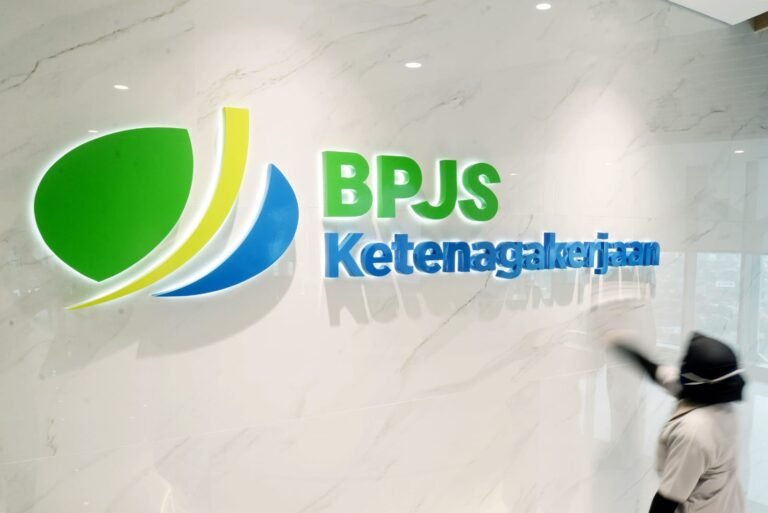As one of the fastest-growing economies in the world, Indonesia is a popular destination for businesses looking to expand their operations. As businesses grow, one of the critical tasks they need to manage is their payroll system. In Indonesia, managing payroll can be a complex process due to the country’s labour laws and regulations. In this article, we will explore the mandatory rights of employees in Indonesia, discuss the things to include on a payroll system, provide an example of Indonesian payroll process calculation, and highlight how our team can help manage your payroll system in Indonesia.
Mandatory Rights of Employees in Indonesia
The Indonesian government has implemented various labor laws to protect the rights of employees. These laws cover a wide range of topics, including minimum wage, overtime pay, and severance pay. Employers in Indonesia are required to comply with these laws, or they may face penalties and legal action. Here are some data-backed mandatory rights of employees in Indonesia:
Minimum Wage: The Indonesian government sets minimum wages for each province and city in the country. According to data from Trading Economics, the average minimum wage in Indonesia was IDR 2.9 million per month in 2020.
Overtime Pay: Indonesian labour laws require employers to pay their employees overtime for any work done beyond the standard working hours. Overtime pay is usually calculated at a rate of 1.5 times the regular hourly rate. According to data from the International Labour Organization (ILO), the average weekly hours worked in Indonesia in 2019 was 47.4 hours.
Severance Pay: Indonesian labour laws require employers to pay severance to employees who have been terminated due to reasons beyond their control, such as downsizing or closure of the business. The amount of severance pay varies depending on the length of service. According to data from the World Bank, the minimum length of service required for severance pay in Indonesia is one year.
Things to Include on Payroll Indonesia System
A payroll system in Indonesia needs to include various elements to comply with the country’s labour laws and regulations. Here are some of the data-backed things that should be included on an Indonesian payroll system:
- Basic Salary: The basic salary is the amount paid to employees for their standard working hours. According to data from Trading Economics, the average wage in Indonesia was IDR 4.67 million per month in 2020.
- Allowances: Allowances are payments made to employees for additional expenses related to their job, such as transportation, meals, and housing. According to data from Mercer, the average housing allowance for expatriates in Jakarta, Indonesia was USD 1,914 per month in 2020.
- Overtime Pay: Overtime pay is calculated based on the number of hours worked beyond the standard working hours. According to data from the ILO, the average hourly wage in Indonesia in 2019 was IDR 18,150.
- Taxes: Employers are required to deduct taxes from their employees’ salaries and pay them to the government. According to data from the World Bank, the corporate income tax rate in Indonesia is 22%.
- Social Security Contributions: Employers are also required to deduct social security contributions from their employees’ salaries and pay them to the government. According to data from Trading Economics, the social security rate in Indonesia is 5.7%.
Example of Indonesian Payroll Process Calculation
To help illustrate how payroll is calculated in Indonesia, let’s take a look at an example. Suppose an employee has a basic salary of IDR 5,000,000 per month and worked 10 hours of overtime in a month. Here’s how their salary would be calculated:
Basic Salary: IDR 5,000,000
Overtime Pay: The overtime pay would be calculated as follows:
Hourly rate: IDR 5,000,000 / 173 (standard working hours per month) = IDR 28,902.32 per hour
Overtime pay: IDR 28,902.32 * 1.5 * 10 (number of overtime hours) = IDR 433,534.80
Allowances: Let’s say the employee is entitled to a transportation allowance of IDR 1,000,000 per month.
Taxes: Assuming a corporate income tax rate of 22%, the tax deducted from the employee’s salary would be:
Total earnings: IDR 5,433,534.80 (basic salary + overtime pay + allowance)
Tax: IDR 5,433,534.80 * 22% = IDR 1,195,977.66
Social Security Contributions: Assuming a social security rate of 5.7%, the social security contribution deducted from the employee’s salary would be:
Total earnings: IDR 5,433,534.80
Social security contribution: IDR 5,433,534.80 * 5.7% = IDR 309,132.18
The employee’s net salary would be calculated as follows:
Gross earnings: IDR 5,433,534.80 (basic salary + overtime pay + allowance)
Deductions: IDR 1,195,977.66 (tax) + IDR 309,132.18 (social security contribution) = IDR 1,505,109.84
Net earnings: IDR 3,928,424.96 (gross earnings – deductions)
We Can Help Manage Your Payroll System in Indonesia
Managing payroll in Indonesia can be a complex process, but our team is here to help. We specialize in providing payroll and HR services to businesses operating in Indonesia, helping them comply with the country’s labour laws and regulations. Our payroll services include managing payroll calculations, preparing payslips, and filing tax and social security contributions. By outsourcing your payroll system to us, you can focus on growing your business while we handle administrative tasks.
In conclusion, managing payroll in Indonesia requires businesses to comply with the country’s labor laws and regulations. Employers must ensure they provide their employees with mandatory rights such as minimum wage, overtime pay, and severance pay. A comprehensive payroll system in Indonesia should include elements such as basic salary, allowances, overtime pay, taxes, and social security contributions. By partnering with our team, you can ensure your payroll system is compliant with the country’s labor laws and regulations, allowing you to focus on growing your business.

















